Guerrilla marketing: it’s a term that you must have heard being thrown around the office. Even if you’re not sure what it is, we can guarantee that you’ve seen examples of it in your lifetime.
Modelled on the crazy ambush tactics of guerrilla warfare, guerrilla marketing strives to create unexpected and surprising ways of making us notice a brand or product – without spending thousands of pounds.
Let’s take a look at how brands are using it:
Frontline
Picture yourself on the second floor of a crowded shopping centre. When you lean over the rail to look down at the floor below, you see a giant golden retriever scratching his ear. Lots of people are walking on top of the dog and from above it looks like fleas and ticks are crawling all over him. The writing next to the dog simply reads: “Get them off your dog.”
This is guerrilla marketing at its most basic but most effective. The giant pooch was constructed from huge stickers, and made for an amusing, memorable and clever use of ambient media.
McDonald’s
McDonald’s have executed numerous guerrilla marketing campaigns over the years, but this one in Sweden took their advertising in a new direction.
The concept was simple. Users got to control a billboard and turn it into a personal game. By completing the game in 30 seconds, consumers won coupons for free food in the nearest Mcdonald’s restaurant.
The campaign worked as it was so easy. Users didn’t have to download an app to take part, which normally causes a barrier to entry. Instead the phone picked up the users location and they could join the game via a website.
Tesco Homeplus
In South Korea, the number two supermarket, Homeplus (owned by Tesco) needed a way to close in on the number one supermarket chain, E-Mart. The result was a brilliant merger of guerrilla marketing tactics with mobile technology. Homeplus covered the walls of subway stations with fake store aisles. Lifelike images of grocery items, each with a unique QR code, surrounded commuters. To fill their virtual shopping carts, commuters simply scanned the unique codes and pick a delivery time while they wait for the next train.
Putting the convenience of mobile grocery shopping and home delivery in front of busy commuters helped Homeplus increase online sales by 130%.
Hotcow is a non-traditional creative agency that specialises in experiential marketing that goes viral. Our campaigns generate buzz through crowd participation, PR and content sharing. Contact us on 0207 5030442 or email us on info@hotcow.co.uk.




